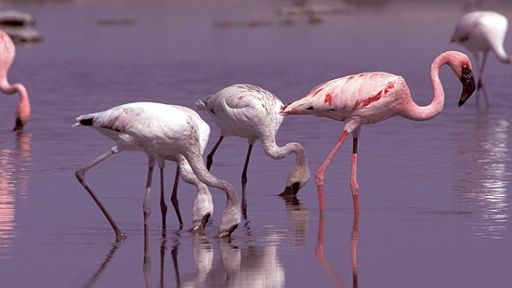The Okavango River flows inland through Botswana from mountains in the north, creating a spectacular delta – a permanent wetland in the heart of the desert. It supports a vibrant community of wildlife which would otherwise never call the desert home. But this world of water is no ‘safe’ oasis. All life here is at the mercy of the delicate balance between the desert and the flood.
S22E4
KALAHARI – The Flooded Desert
View the Okavango Delta, after the rains, from the point of view of the crocodile and the eagle. 8/22/2012

